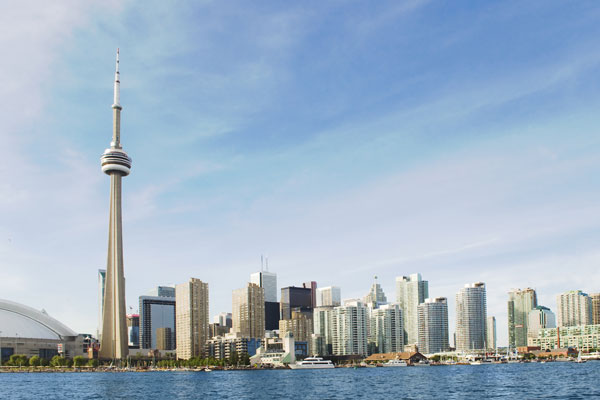10/1/2019
| SHARE
Posted in Toronto Real Estate by Vanguard Realty | Back to Main Blog Page

Toronto has emerged as the world’s second most overvalued housing market on the back of low rates and supply shortages, according to UBS AG’s annual global real estate bubble index.
Vancouver was sixth in the Swiss bank’s 2019 index that is led by Munich, with Hong Kong, Amsterdam and Frankfurt filling out the other top spots.
Toronto’s housing prices tripled between 2000 and 2017 and even the introduction of a foreign buyer’s tax and tighter mortgage rules only temporarily cooled red-hot prices, according to UBS.
“A major price correction seems unlikely in the short term given improving mortgage conditions, a weakening Canadian dollar and falling supply,” the bank said.
In Vancouver, the 2016 regulatory changes helped depress prices by 7 per cent compared with a year ago, but “sky-high valuations and overstretched affordability make the market vulnerable to even minor demand shifts,” UBS said.
“Due to increasing regional housing supply, a turnaround is unlikely for now, especially as real prices are still 75 per cent higher than a decade ago,” according to the report’s analysis of Vancouver. “However, downside risks are mitigated by still attractive financing conditions, as the Bank of Canada has lowered the qualifying mortgage rate for the first time since 2016.”
In considering Canada overall, UBS said “the housing frenzy seems to be over for now” and that further market weakening is likely as concerns about lower economic growth outweigh reduced mortgage rates.
Despite the housing bubble risks in Canada’s largest cities and lower interest rates globally, UBS said it sees a correction phase emerging worldwide due to burdens that buyers face in meeting mortgage payments, qualifying for bank loans in the first place and weathering the impact of economic uncertainty on demand growth.
“Despite the worldwide collapse in interest rates, the negative trend in home prices will probably continue,” UBS said.
By and large the cities of the eurozone had the greatest exposure to property price bubbles because of low interest rates and strong economic growth, with Paris joining the above-mentioned cities at risk of a price bubble, the report showed. Inflation is curbing affordability while an expected economic slowdown in Germany will test current prices, UBS said.
Globally, the bank said price growth rates have continued to slow in a majority of cities and average price growth stagnated for the first time since 2012. Lending is matching gross domestic product growth for the most part in contrast to the years before the 2008 financial crisis when outstanding mortgage volumes increased at as much as 2.5 per cent faster than GDP, UBS said.
Frankfurt was the only city to see double-digit percentage increases in house prices, which were common in previous years, the bank said.
However, affordability remains a key risk as the median price-to-income ratio has risen from five to seven years as the time needed to pay for an apartment in cities over the last decade, with Hong Kong and London the worst affected while Singapore was the most improved, the study showed.
Vancouver ranked 10th on that metric at eight years while Toronto was 20th most expensive at six years, the report showed.
“Buying a 60-metre-square (650-square-feet) apartment exceeds the budget of people who earn the average annual incomes in the highly-skilled service sector in most world cities,” UBS said. “Unaffordable housing is often a sign of strong investment demand from abroad, tight zoning and rental market regulations.”
Source: Financial Post
Overvaluation, Toronto Real Estate, World Real Estate Markets

